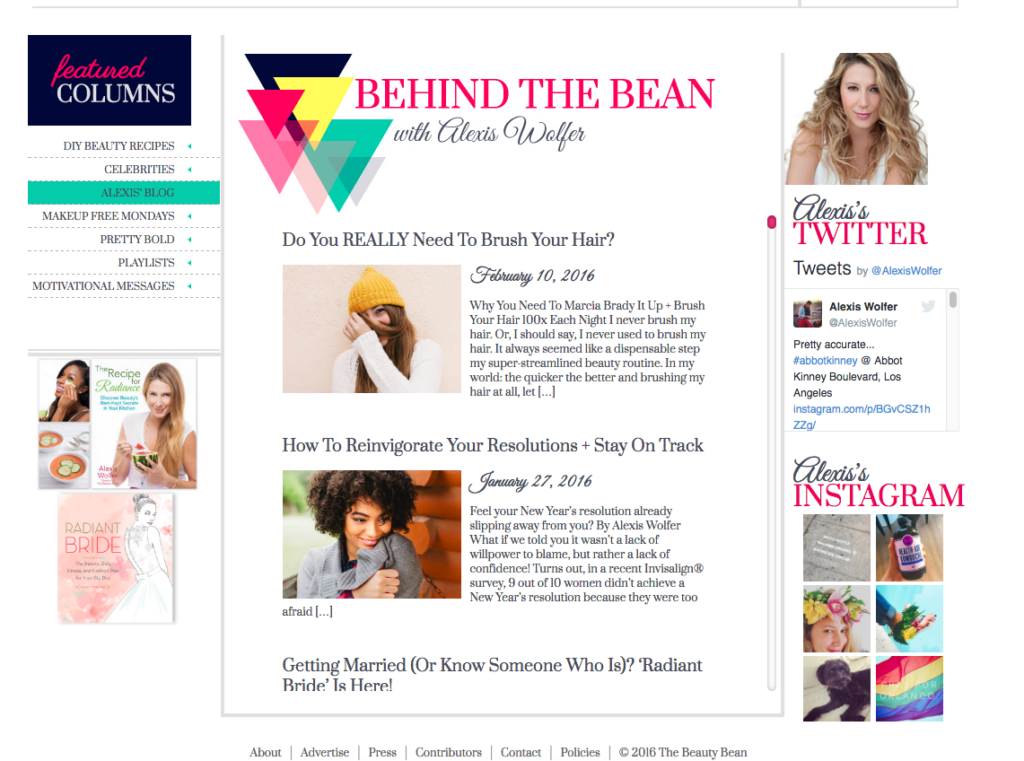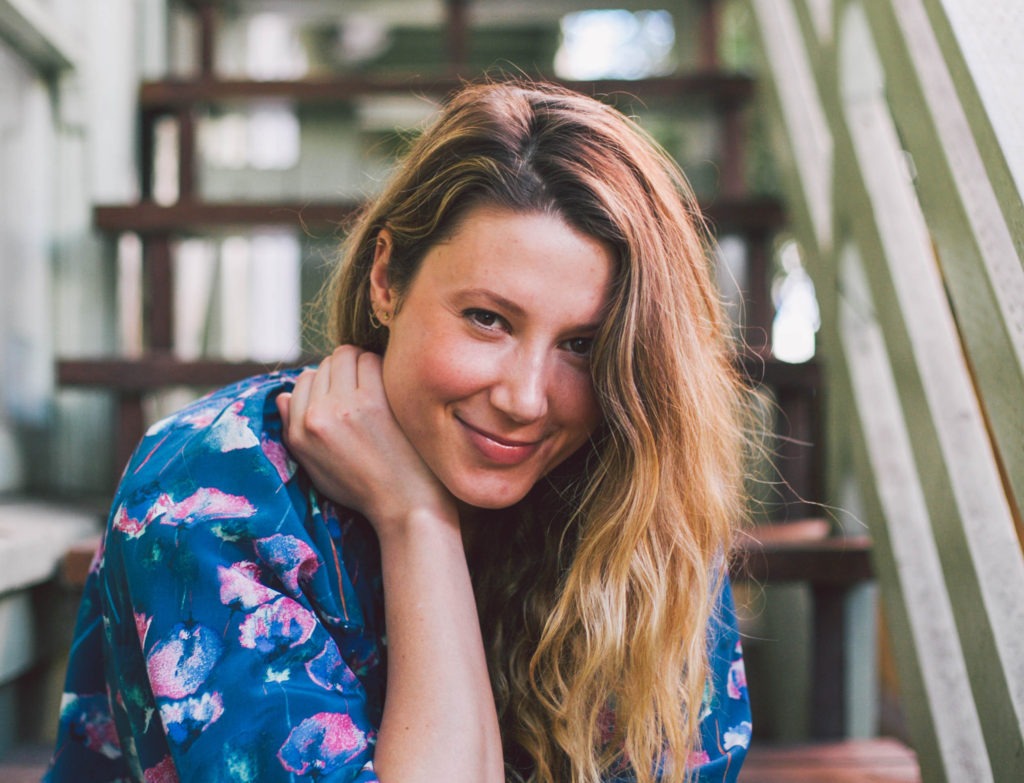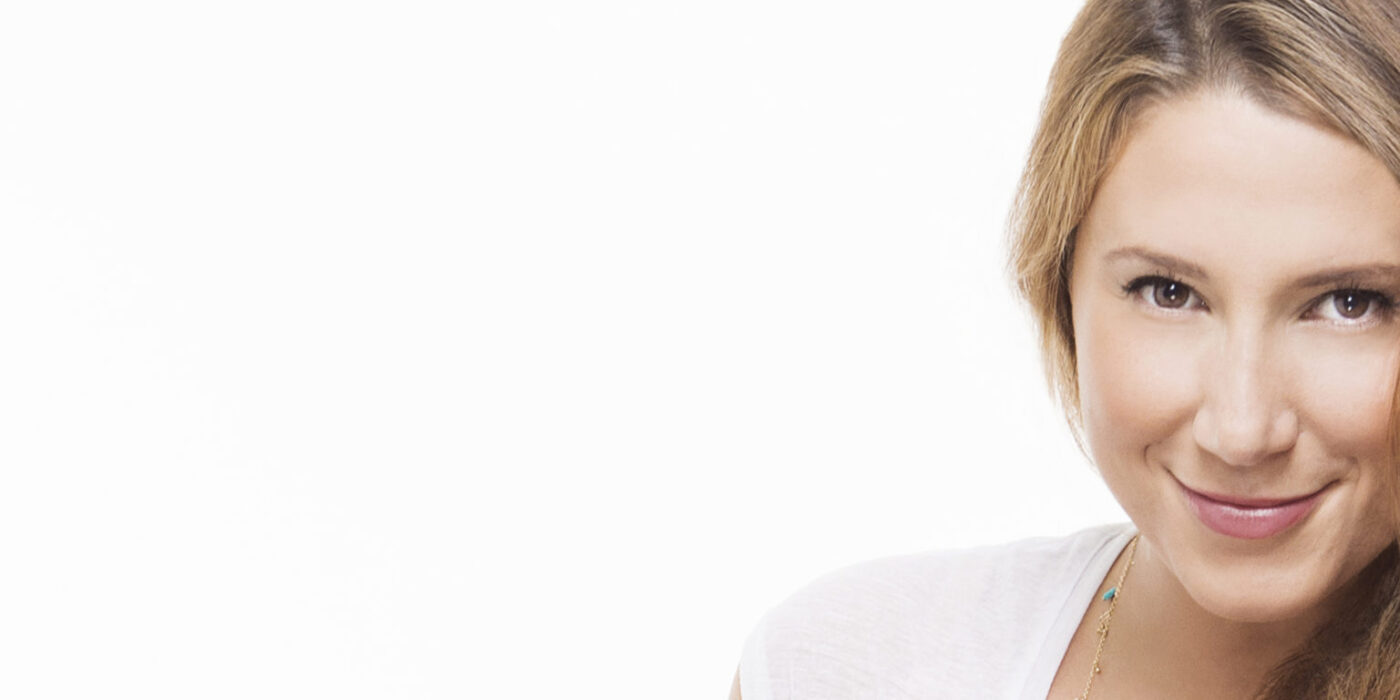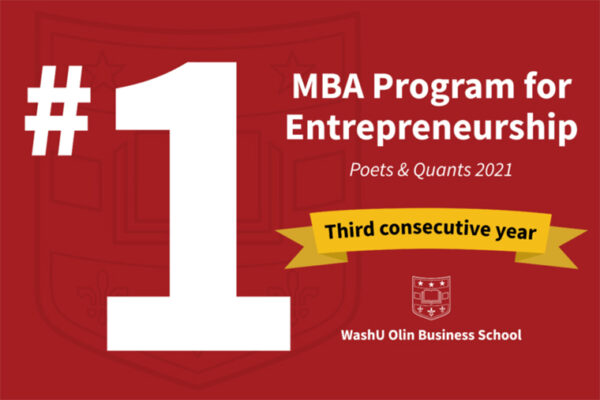Long before People StyleWatch named her “The DIY Beauty Queen,” Alexis Wolfer had the DIY mentality as she set out to create “The Beauty Bean,” an online women’s magazine that would change the way women talk about beauty, health and wellness.
After receiving her bachelor of arts in women’s studies and psychology from Washington University in St. Louis, Wolfer went on to earn her master of arts in human rights and women’s studies from Columbia University. While working at Lucky Magazine for fun, she developed the idea for her master’s thesis on the corporate social responsibility of women’s magazines and their influence on eating disorders. The thesis would become her business model for “The Beauty Bean.”
“I realized that the ultimate human right is the right to love yourself and that if you don’t love and respect yourself it becomes very difficult to ask others to love and respect you,” Wolfer says.

“The Beauty Bean” takes the focus away from weight loss and dieting and instead encourages women to lead healthy and happy lives. The site features anything from DIY beauty recipes and motivational messages to makeup, hair and fitness tips. Two years into her venture, Forbes named “The Beauty Bean” one of the top 10 lifestyle websites. Wolfer has also published two books, The Recipe for Radiance: Discover Beauty’s Best Kept Secrets in Your Kitchen and Radiant Bride: The Beauty, Diet, Fitness, and Fashion Plan for Your Big Day. While the Forbes article and her first book deal stood out as highlights of her entrepreneurial career, there were challenges along the way.
“I’d be remiss not to mention the multiple evenings I spent sitting on my apartment floor in my tiny studio apartment in New York, hysterically crying, thinking what was I doing?” Wolfer says. “I used to call my dad when I couldn’t figure something out and he would say, ‘You can do anything you put your mind to,’ and he would hang up on me.”
Taking risks
It was at WashU that Wolfer first realized her passion for women’s issues. She came in as an undergraduate with a clear plan: she would study economics and finance, following in the footsteps of her three older brothers. But along the way she stumbled into a women, gender and sexuality studies course that changed not only her major, but also the way she viewed the world.
“It taught me that there are so many different ways to look at the same text, the same situation, the same history,” says Wolfer. “WashU set me up to take risks.”

In fact, Wolfer’s biggest advice is to take risks. She encourages current students to find a class outside of their expertise that will give them an additional lens with which to see situations through. Even today, Wolfer expands her own “lenses” by reading novels and The New York Times science section–texts that are far from her usual beauty and health spheres.
“The risk only gets bigger when you have a more expensive rent to pay or a mortgage or a family, so don’t put it off,” Wolfer says. “There are so many people out there that have the idea, but they don’t have the tools to execute it and that doesn’t make you not an entrepreneur and not successful–you just need to build the right team. But you don’t want to wake up and be the person that thought of something six years ago and now someone else is worth a billion dollars and you’re not.”
According to Wolfer, feeling comfortable taking those risks starts with the people surrounding you. Over the years she has compiled a team of cheerleaders and realists–the cheerleaders being the people who will cheer her on no matter how crazy an idea might be and the realists being the ones who will pick apart even the most solid ideas.
“The strength you find in doing this as long as I have is knowing who to call when,” says Wolfer. “In those moments of fear and doubt, knowing there were people who wanted the best for me and were going to help me get there was really powerful.”
Sharing her story with WashU
Wolfer recently shared her insight at Junior Jumpstart, a WashU program aimed at helping students prepare for their senior year and beyond. During the opening panel on failure and growth, Wolfer spoke about spending two years working hard on a business that would allow women to rent maternity clothes but eventually realizing the business would not pan out.
“It’s something I haven’t talked about in years,” says Wolfer. “I do a lot of interviews where people ask for your story and I never include it in my story. It was never intentional, it just felt irrelevant to what I do.”
Although it’s often left out, the experience turned out to be what Wolfer describes as a “bare bones version of business school.” She learned about financial modeling, networking and asking the right questions. It changed how she thought about businesses and, in turn, influenced the way she runs “The Beauty Bean.”
“The bios they put everywhere of me – and other successful entrepreneurs – don’t mention the failures. They don’t mention the fact that I put my heart and soul into something that failed miserably,” says Wolfer. “I think the vast majority of people who see success have had a whole lot of things that didn’t go right. So don’t compare someone else’s highlight reel to your reality.”



